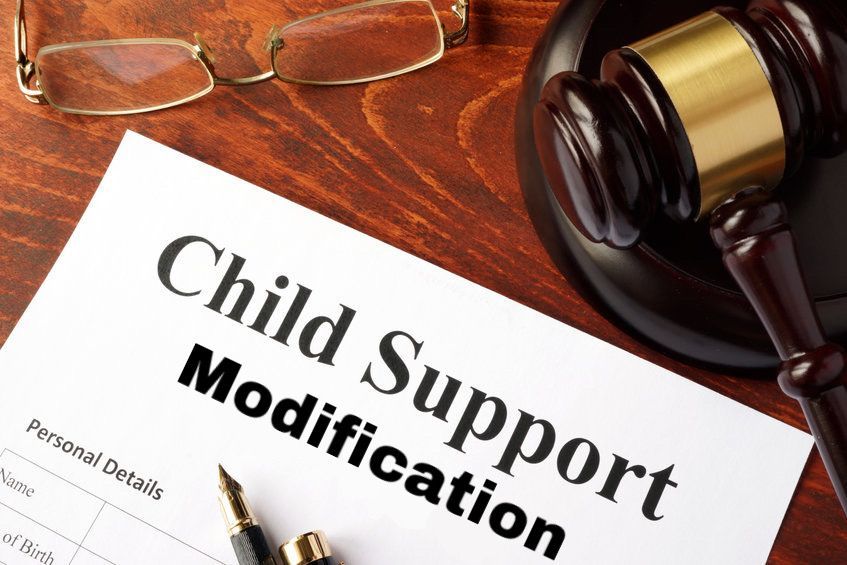If I Make $1,000 a Week How Much Child Support Do I Pay?
If you make $1,000 a week, you'll typically pay between $160 to $250 per week in child support for one child, depending on your state's laws. Most states use either a percentage model (where you pay 15-25% of your income) or an income shares model (where both parents' incomes are combined to determine fair payment).
This article will walk you through exactly how child support works when you earn $1,000 per week. We'll explain the different ways states calculate payments, what affects your final amount, and how to handle changes in your life that might change what you owe.
How Child Support Is Calculated in Your State
Every state has its own rules for child support. But most states use one of three main ways to figure out how much you should pay.
The Income Shares Model
Most states in America use what's called the income shares model. This method looks at both parents' incomes and tries to divide what it costs to raise a child based on how much each parent earns.
Think of it like this: if you and your child's other parent were still together, you'd both be putting money toward raising your child. The income shares model tries to keep things the same way, even though you're living apart.
Here's how it works:
- The court adds up both parents' monthly income
- They look at a state chart to see how much it costs to raise your number of children
- Each parent pays their share based on how much they earn
- The parent who doesn't have the child most of the time pays their share to the other parent
Example: Let's say you make $4,333 per month ($1,000 per week) and your child's other parent makes $2,167 per month. Your combined income is $6,500. The state chart says it costs $1,200 per month to raise one child. You earn about 67% of the combined income, so you'd be responsible for about $800 per month (67% of $1,200).
Forty-one states use this income shares model as of 2020, making it the most common way child support is calculated in America.
The Percentage of Income Model
Some states use a simpler approach called the percentage of income model. This method only looks at the income of the parent who doesn't have custody and takes a set percentage of that income.
Six states use this model: Alaska, Mississippi, Nevada, North Dakota, Texas, and Wisconsin.
Here's what you'd pay in these states if you make $1,000 per week:
- For one child: Usually 15-20% of your income, which equals $150-$200 per week
- For two children: Usually 20-25% of your income, which equals $200-$250 per week
- For three children: Usually 25-30% of your income, which equals $250-$300 per week
In Texas, if you make $1,000 a week, you would pay $200 weekly for one child because Texas uses a 20% rate for one child.
The Melson Formula
Only three states use the Melson Formula: Delaware, Hawaii, and Montana. This is the most complicated way to calculate child support.
The Melson Formula starts like the income shares model but adds an extra step. It makes sure each parent has enough money left over for their own basic needs before calculating child support.
This means the court first checks that you'll have enough money to live on. Then they calculate what you should pay for your child.
Breaking Down Your Weekly Income
When the court looks at your $1,000 per week income, they need to understand exactly what that means on a monthly basis.
Converting Weekly to Monthly Income
Most child support calculations use monthly numbers, not weekly ones. If you make $1,000 per week, here's the math:
$1,000 per week × 52 weeks ÷ 12 months = $4,333.33 per month
This monthly number is what courts will use when they calculate your child support.
What Counts as Income
Child support calculations don't just look at your paycheck. Courts consider income from all sources including workers compensation, temporary disability benefits, and social security disability benefits.
Income can include:
- Your regular salary or hourly wages
- Overtime pay
- Bonuses and commissions
- Self-employment earnings
- Rental income from property you own
- Investment income and dividends
- Retirement benefits
- Unemployment benefits
- Disability payments
Benefits received from the Family Independence Program are not considered income, and any benefit received from Social Security is not considered income in some states.
Allowed Deductions
The good news is that not all of your $1,000 goes into the calculation. Most states let you subtract certain expenses first.
Common deductions include:
- Health insurance premiums you pay for your children
- Child support you already pay for other children
- Childcare costs you pay
- Some mandatory retirement contributions
- Union dues (in some states)
After these deductions, you get what's called your "adjusted gross income." This is the real number used to calculate child support.
How Many Children You Support
The number of children you're supporting makes a big difference in how much you pay.
Support for One Child
If your state uses a percentage of income model and you earn $1,000 a week, you might pay between $100 to $200 weekly for one child, depending on the number of children.
In states using the income shares model, you'll typically pay your proportional share of what it costs to raise one child. This usually works out to around $200-$250 per week if you're the higher earner.
Support for Multiple Children
As you add more children, the percentage goes up, but not by the same amount each time. Here's what's typical in percentage states:
- One child: 15-20% of income
- Two children: 20-25% of income
- Three children: 25-30% of income
- Four children: 30-35% of income
- Five or more children: 35-40% of income
Notice that each additional child doesn't double your payment. If you pay $200 per week for one child, you won't pay $400 for two children. You'd pay more like $250-$300 per week.
Children from Different Relationships
If you have children with more than one person, things get more complicated. Courts usually calculate what you'd owe for each family separately, then adjust the amounts so your total obligation is fair.
Most states will deduct child support you're already paying for other children before calculating new support obligations.
Factors That Can Change Your Payment
The base calculation is just the starting point. Several things can push your child support payment up or down.
Parenting Time and Custody
How much time you spend with your child matters a lot. When parents have at least 49% of parenting time in Rhode Island, the higher earning parent pays the lower earning parent.
In many states, if you have your child overnight regularly, your child support might be reduced. The thinking is simple: when your child is with you, you're paying for their food, activities, and other needs directly.
Some states have specific rules:
- Equal or 50/50 custody: Child support might be much lower or even eliminated if both parents earn similar amounts
- Substantial parenting time: If you have your child 30-40% of the time, you might see a reduced payment
- Standard visitation: If you only see your child every other weekend, you'll pay the full calculated amount
Healthcare and Insurance Costs
If either parent provides health insurance for the children, this expense can influence payments.
Usually, these costs are split between parents based on their income percentage. If you pay $200 per month for your child's health insurance, this might be added to the basic child support amount, and then each parent pays their share.
Uncovered medical expenses work the same way. If your child needs braces or has a medical emergency, those costs are typically split proportionally.
Childcare Expenses
Any necessary daycare or childcare expenses will be factored into the final child support amount.
If your child's other parent works and needs to pay for daycare, this cost is usually added to the basic support amount. Then it's divided between both parents based on income.
Example: Basic support is $1,000 per month, and daycare costs $600 per month. The total obligation is now $1,600. If you earn 60% of the combined income, you'd pay $960 per month instead of $600.
Special Needs and Extra Expenses
If a child has special needs, additional support may be required.
Children with disabilities, chronic health conditions, or educational needs might require extra money for:
- Speech therapy or physical therapy
- Special education services
- Medical equipment
- Specialized care
- Tutoring or educational support
Courts can order higher support amounts to cover these needs. You might also be required to split extraordinary expenses 50/50 or based on your income percentage.
Education Costs
Regular school supplies and basic education are usually covered in the standard child support amount. But bigger education expenses are handled differently.
Private school tuition is typically negotiated separately. Some courts will order both parents to contribute to private school if:
- The child was already attending private school before the separation
- Both parents agree it's beneficial
- Both parents can reasonably afford it
College expenses are handled differently in each state. Some states don't require parents to pay for college at all. Others expect parents to contribute based on their ability to pay.
State-by-State Examples
Let's look at what you'd actually pay in different states if you make $1,000 per week.
California Child Support
California's formula for calculating child support includes factors like taxes, health insurance premiums, and other child-related expenses. An individual earning $1,000 a week might pay around $250 per month for one child, though this figure can vary significantly based on specific circumstances.
California uses a complex income shares model that considers both parents' net disposable income, which is income after taxes.
Texas Child Support
Texas applies a fixed percentage of the non-custodial parent's income based on the number of children. The rates are 20% for one child, 25% for two children, and so forth, up to a maximum of 40%. Therefore, a parent making $1,000 a week would pay $200 weekly for one child.
Texas uses "net resources" for calculation, which is your income after certain deductions.
Nevada Child Support
In Nevada, making $1,000 a week usually means paying 16% in child support—roughly $680 per month—depending on your case details.
If you make $1,000 per week with no unpaid vacations, you make approximately $4,333.33 per month. Nevada's 16% rate for one child would result in about $693 per month.
Florida Child Support
In Florida, if you make $1000 per week, you will pay $828 as child support per month. It also depends upon the overnights you have in a month.
Florida uses an income shares model, so the exact amount depends on your child's other parent's income and how many overnights you have with your child.
Rhode Island Child Support
Rhode Island uses the income shares model. The State of Rhode Island has adopted the income shares model to determine the weekly child support order, based upon the philosophy that children are entitled to the standard of living based upon both parents' monthly income.
For information specific to Rhode Island, you can learn more about child support requirements in the state.
When Your Income Changes
Life doesn't stay the same. Your job, your health, and your financial situation can all change. When they do, your child support might need to change too.
Job Loss and Unemployment
If you lose your job, your child support doesn't automatically stop. Child support often changes as the child grows and the parents' circumstances shift.
Here's what you need to do:
- Keep paying what you can.
Even if you can't pay the full amount, pay something. This shows the court you're trying.
- File for modification immediately.
Don't wait to see if you find a new job. Modifications only apply from the date you file, not when the change happened. Waiting can cost you.
- Document your job search.
Keep records of every job you apply for. Courts want to see that you're actively looking for work.
If you start collecting unemployment, courts will look at unemployment benefits as income when calculating child support, though it's usually less than what you were earning.
Getting a Raise or Promotion
Good news for your wallet might mean your child support goes up. Child support often increases when the paying co-parent's income rises significantly.
Your child's other parent can request a modification if:
- Your income goes up by a significant amount (usually 15-20% or more)
- It's been at least three years since the last order
- The new calculation would be substantially different
You should report significant income increases even if your child's other parent doesn't know about them. Hiding income can get you in serious legal trouble.
Medical Issues and Disability
If you become disabled and can't work, the court might reduce your child support. In cases where the non-custodial parent is under or unemployed due to a disability that prevents them from working, a judge may order income to not be considered.
You'll need medical documentation proving:
- You have a legitimate disability
- The disability prevents you from working
- The disability is expected to last a long time
Short-term illnesses usually don't qualify for modifications. But serious, long-term disabilities that affect your ability to earn money are usually considered.
Changes in Parenting Time
If you start having your child more often, you might pay less child support. Child support may decrease if the child spends more overnights with that parent.
To get a modification based on parenting time:
- Track every overnight accurately
- Show the change is permanent, not temporary
- Demonstrate that you're actually spending more time with your child
- File for modification once the new schedule is established
Keep good records. Many parents use co-parenting apps that automatically track and document parenting time.
Remarriage and New Children
Getting remarried doesn't change your child support obligation by itself. Your new spouse's income usually isn't considered when calculating support.
However, if you have more children:
- Courts recognize you have new dependents to support
- Your support might be adjusted to account for your additional responsibilities
- The change usually isn't huge, but it can help
Understanding Rhode Island Child Support Laws
If you live in Rhode Island and make $1,000 per week, here's what you need to know about the state's specific rules.
Rhode Island's Income Shares Model
Rhode Island uses an Income Shares Model that considers both parents' gross incomes, the number of children, healthcare costs, and childcare expenses.
The Rhode Island guidelines create a presumption that the calculated amount is correct. Rhode Island courts presume that guideline amounts are correct, but may deviate from guidelines in certain circumstances when the presumptive amount would be unjust or inappropriate.
Calculating Your Rhode Island Support
In order to calculate a monthly child support order, the Court will look at weekly gross income of both parents before taxes and before any other deductions.
The process works like this:
- Determine gross income: Your $1,000 per week equals $4,333 per month
- Subtract allowed deductions: Health insurance for children, existing child support, childcare costs
- Get adjusted gross income: This is your income after deductions
- Add both parents' incomes together
- Look at the guideline chart: Find the support amount for your combined income and number of children
- Calculate each parent's share: Based on percentage of combined income
- Convert to weekly payment: Divide monthly amount by 4.3333
When Rhode Island Courts Deviate from Guidelines
There are some cases where the court will deviate from the standard calculation guidelines. If it is determined that sticking to the guidelines would be unfair to either the parent or the child, the court can deviate from them.
Courts might order different amounts when:
The current standard of living and expenses are beyond what is possible on the gross income amount reported to the court, or there are extraordinary or uncommon expenses that are needed for the child.
Rhode Island Support Modifications
Child support orders can be modified when there are substantial changes in circumstances that make the current order inappropriate or unjust.
Reasons for modification include:
- Significant income changes for either parent
- Changes in custody or parenting time
- Changes in health insurance costs
- New or changed childcare expenses
- Special needs that develop
If it has been longer than 36 months since the child support order was entered or last reviewed, you do not need to have a change in circumstances to request a review in Rhode Island.
If you're dealing with child support issues in Rhode Island, an experienced attorney can help. At Inman & Tourgee, our divorce and family law attorneys have helped Rhode Island families for over 30 years.
What Happens If You Don't Pay
Not paying child support has serious consequences. The government has powerful tools to collect what you owe.
Wage Garnishment
The law allows employers to garnish up to 50% of a parent's disposable earning for past-due child support, and this increases to 60% if the parent is not supporting another child or children who aren't covered under the child support order in question.
This can work out to more than double the limit for other types of debts, which is generally only 25%.
The garnishment increases by another 5% if you're more than 12 weeks behind. Child support garnishments take priority over any other garnishments, with the exception of IRS tax levies.
License Suspension
States can suspend various licenses if you fall behind:
- Driver's license
- Professional licenses (doctors, lawyers, contractors)
- Business licenses
- Recreational licenses (hunting, fishing)
You usually get warning before this happens, but once your license is suspended, you have to catch up on payments to get it back.
Tax Refund Intercept
States can intercept tax refunds to satisfy child support debts.
Both federal and state tax refunds can be taken. If you're owed $2,000 in tax refunds but you're $3,000 behind on child support, the government will take your entire refund and apply it to your debt.
Property Liens
Some states allow a custodial parent to get a lien on the payer's real or personal property. The lien remains effective until payment, or until the custodial parent agrees to release the lien.
This means if you try to sell your house or car, you'll have to pay the child support debt first.
Contempt of Court
If you willfully refuse to pay child support, the court can hold you in contempt. A finding of contempt carries serious legal consequences. Penalties can include community service, fines, and even jail time.
Judges typically only use contempt when other enforcement methods, like wage garnishment or license suspensions, have failed.
Credit Reporting
Unpaid child support gets reported to credit bureaus. This can:
- Lower your credit score significantly
- Make it harder to get loans
- Affect your ability to rent an apartment
- Impact your job prospects in some fields
Criminal Charges
In extreme cases, not paying child support can lead to criminal charges. This usually happens when:
- You owe a very large amount ($5,000 or more in some states)
- You haven't paid in over a year
- You've crossed state lines to avoid paying
- You've deliberately hidden income or assets
How to Request a Child Support Modification
If your circumstances have changed, here's how to modify your child support order.
Gather Your Documentation
Before you file anything, collect:
- Pay stubs from the last 3-6 months
- Tax returns from the last 1-2 years
- Proof of any life changes (layoff notice, medical records, new custody schedule)
- Your current child support order
- Records of all payments you've made
- List of work-related expenses
- Healthcare and insurance documents
File the Right Forms
Each state has specific forms for requesting modifications. Any changes in income, employment status, or living arrangements? File to modify your order as quickly as possible using your state's forms.
You can usually find these forms:
- On your state's child support enforcement agency website
- At your local family court
- Through your state's judicial website
Understand the Timeline
The time it takes to establish child support varies but can take several weeks to months, depending on how long it takes to gather financial information and schedule court hearings.
Typical timeline:
- Filing: Same day
- Serving the other parent: 1-2 weeks
- Response deadline: 2-4 weeks after service
- Mediation or hearing: 1-3 months after filing
- Final order: Could be same day as hearing or take another few weeks
Consider Mediation
Many courts require or encourage mediation before a hearing. This is where you and your child's other parent meet with a neutral person to try to reach an agreement.
Benefits of mediation:
- Faster than going to court
- Usually cheaper
- Less stressful
- You have more control over the outcome
- Better for co-parenting relationship
Prepare for Your Hearing
If you can't reach an agreement, you'll go before a judge. If you attend mediation, the best way to win child custody is treat it like a job interview—gather paystubs, bills, and school schedules. The more organized you are, the easier mediation will go.
For your hearing:
- Dress professionally
- Arrive early
- Bring multiple copies of all documents
- Be honest and straightforward
- Don't argue with your child's other parent
- Answer only what's asked
- Stay calm and respectful
Common Mistakes to Avoid
People make these mistakes all the time. Don't be one of them.
Stopping Payments Without Court Approval
You must follow the court's order until a judge signs a new order.
Even if you and your child's other parent agree to change support, you must get court approval. Informal agreements don't count. Keep paying the court-ordered amount until you have a new court order in writing.
Paying Cash Without Documentation
Always document your payments. If you pay cash:
- Get a signed receipt every time
- Write the date, amount, and what it's for on the receipt
- Keep copies in a safe place
- Consider using money orders instead—they create automatic records
If you can't prove you paid, legally you didn't pay.
Not Reporting Income Changes
Hiding income or not reporting significant changes is a bad idea. Courts have ways to discover your real income:
- Tax returns
- Bank records
- Employment verification
- Social Security earnings records
- Asset searches
Getting caught lying about income can result in penalties, back payment orders, and even criminal charges.
Using Children as Leverage
Never use child support as a weapon in custody disputes. Two things to remember:
- Custody and visitation are separate from financial obligations
- Child support is your child's right, not your ex's right
You can't refuse to pay because you don't see your kids enough. You can't withhold visitation because you're not getting paid. These are separate legal issues that require separate solutions.
Ignoring Court Orders
If you receive modification papers or court notices, respond to them. The most important thing you can do is take action as soon as possible and to never ignore a wage garnishment order.
Ignoring court orders won't make them go away. It will only make your situation worse.
Getting Help with Child Support
Child support can be confusing, especially when you're dealing with the emotional stress of separation or divorce.
When to Hire a Lawyer
Consider hiring a family law attorney if:
- You have a complicated financial situation (self-employment, multiple income sources, significant assets)
- Your child has special needs
- You're dealing with out-of-state issues
- Your child's other parent has an attorney
- You're facing enforcement actions
- You disagree with the calculated amount
An experienced attorney can help you understand your rights, gather the right documentation, and present your case effectively.
Free and Low-Cost Resources
If you can't afford an attorney, options include:
State Child Support Agencies: Every state has a child support enforcement office that can help establish, modify, and enforce child support orders, often for free or a small fee.
Legal Aid Organizations: Many communities have legal aid offices that help low-income people with family law issues.
Court Self-Help Centers: Most family courts have self-help centers with staff who can answer questions and help you fill out forms.
Online Resources: State court websites often have guides, forms, and calculators to help you understand the process.
Working with Your State Child Support Agency
Rhode Island OCSS can help enforce court-ordered child support through various methods.
State agencies can help you:
- Establish paternity
- Locate absent parents
- Establish child support orders
- Collect and distribute payments
- Enforce orders
- Modify support amounts
These services are usually free or very low cost.
New Child Support Laws and Updates for 2025
Child support laws continue to evolve. Here are some important updates for 2025.
Gig Economy and Freelance Income
More income sources are now counted in support calculations, including gig work, crypto earnings, and freelance income.
If you drive for Uber, sell things online, or have any side income, it now counts toward child support. States have implemented clearer guidelines and technology to detect, verify, and include these income streams in the child support formula.
Faster Modification Processes
Parents can now request support modifications more easily through simplified online portals in many states.
Many states have introduced digital systems that make it easier to:
- File for modifications online
- Submit documents electronically
- Track your case status
- Communicate with the agency
Updated Poverty Guidelines
Calculations have been adjusted to reflect inflation and rising living costs.
Courts now better recognize that parents need enough money to survive. More states are offering graduated payment plans and temporary relief programs for parents who are unemployed or facing financial emergencies.
Incarceration Policies
Child support will be suspended for incarcerated parents until the tenth full month following their release in some states.
California law now suspends child support after 90 days of incarceration if the proper steps are taken. Support resumes on the first day of the tenth month after release.
Enhanced Enforcement
Enforcement tools have become more automated and far-reaching under the 2025 reforms.
Most enforcement is now automated through payroll systems, license checks, and digital asset tracking. Non-payment is harder to avoid and quicker to correct.
Final Thoughts
If you make $1,000 per week, your child support payment depends on many factors: where you live, how many children you have, your child's other parent's income, and special circumstances in your case. Most people earning this amount pay between $160 to $250 per week for one child, but the actual amount can vary significantly.
The most important things to remember are:
- Child support calculations vary by state, so understand your state's rules
- Your payment is based on your actual income, not what you wish you earned
- Changes in your life can qualify you for a modification, but you must request it through the court
- Never stop paying without a court order, even if your situation changes
- Keep detailed records of all payments
- Not paying has serious legal and financial consequences
Child support isn't just a legal obligation—it's about making sure your child has what they need to grow up healthy and happy. When parents understand the system and work within it, everyone benefits, especially the children.
If you're in Rhode Island and need help with child support matters, the experienced attorneys at Inman & Tourgee can guide you through the process. With over 125 years of combined legal experience, we understand Rhode Island family law and can help protect your rights while making sure your children get the support they deserve. For child custody or child support questions, call (401) 823-9200 to schedule your confidential consultation.
Remember, child support laws are complex and change regularly. This guide provides general information, but every situation is different. For advice specific to your case, consult with a qualified family law attorney in your state.











